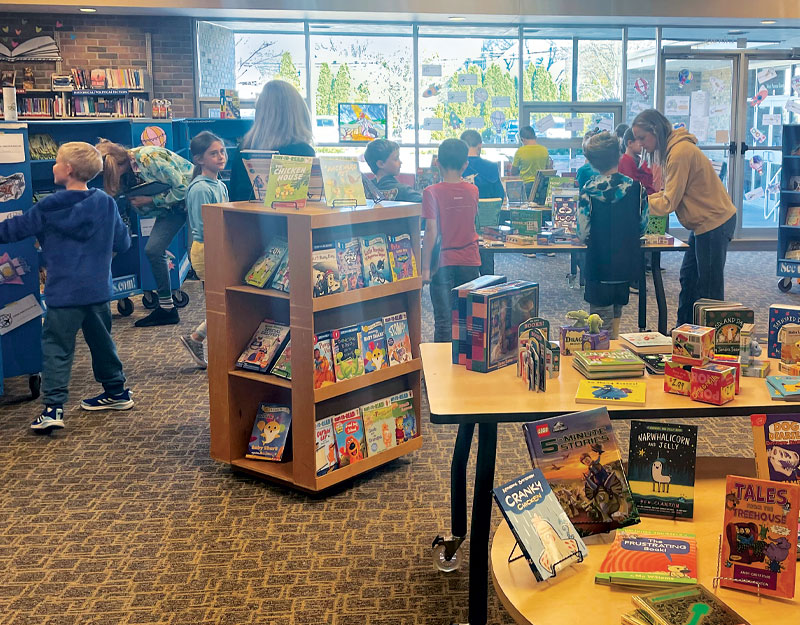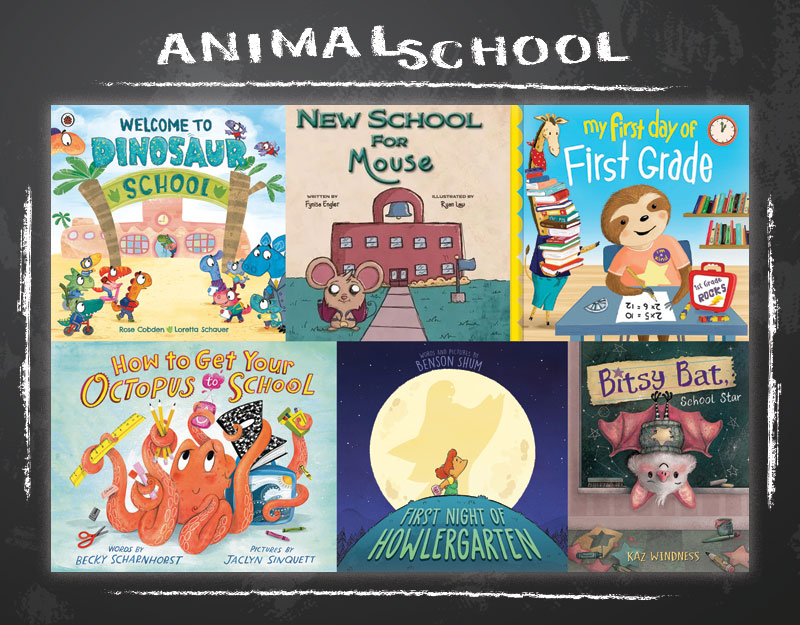Finding Power in the Shadows, a guest post by Claire Legrand

I’ll be honest with you: my new book, Extasia, was really hard to write.
All the books I’ve written have been challenging in various ways, but Extasia was a different beast entirely, for several reasons.
First of all, after writing Sawkill Girls, I struggled to come up with an idea for my next horror novel. I tried on a few different concepts, but nothing felt right.
Once I landed on the idea that would become Extasia, I felt immensely excited about what I was setting out to write. But what I set out to write was very different from what the book ended up becoming. I had this idea of what the book should be—slim, taut, grim, weird—and wrote a whirlwind of a first draft in about a month. The working title was Not Like the Others.
ADVERTISEMENT
ADVERTISEMENT
That first draft was a mess. I don’t regret writing it; I was trying something new and specific, and it didn’t work out. No shame there.
However, my editor and I decided I needed to essentially scrap that first draft and start over. Now, rewriting a book is, obviously, far from the worst thing imaginable.
But, wow, did it feel like it.
In addition to that, I was struggling to balance my job as a writer and my job as a librarian. Professionally, I was doing better than ever, thanks to the success of the Empirium Trilogy, but while I felt fortunate and grateful for that success, with it came a level of pressure and expectations that brought with it heaps of stress—stress I insisted on ignoring. My anxiety skyrocketed; I called my mom every day in tears, cried myself out, dismissed my misery, started again.
Feeling myself buckling was mortifying. I’m stronger than this, I told myself, or at least I should be. Stronger, smarter, more clever, more adaptable. Other people can do this. Why can’t I?
The terrible things I felt about myself, and told myself, over and over, slowly became my reality.
Then the pandemic happened.
I don’t need to elaborate on the devastating and widespread effects of the pandemic; you’ve all read, heard, and thought about that enough by this point, and from people far smarter than I am.
But in my singular little bubble, on a very personal level, the pandemic was the proverbial final straw. That buckling sensation I’d been fighting off for ages became a full-on collapse, terrifying in both its novelty and intensity.
Meanwhile, I had a contract to fulfill. I had to edit Extasia.
How do you find the mental and emotional wherewithal to do the deep work that your job requires when your brain is making you sick?
How do you hold onto things like hope and creativity when the cruelty and injustice of the world is intensified by a crisis like the global pandemic?

How do you do any of that when you’re immersed in the world of a book that explores themes of grief, trauma, abuse, and religious extremism?
Quite frankly, I’m still a bit fuzzy on all the hows of getting from there to here—how I began healing on a personal level, and how I wrote a book that’s not only, you know, finished, but is in fact a book of which I’m ferociously, dizzyingly proud.
But, looking back on the past few years, I can point out three things I’ve found helpful. These are things I’ve promised myself to not only continue to work on and think about personally, but also to discuss when I visit schools and libraries.
How do you take care of yourself—and your creativity—when the world around you feels unsafe?
Pick your people wisely and hold them close
In Extasia, the main character, Amity, lives in the isolated, once-idyllic village of Haven, which has recently been hit by a string of increasingly gruesome and unsolvable murders, all of them targeting men and boys. Pious Amity, eager to restore her family’s name to its former glory, assumes these murders are the work of the Devil himself, and decides to find him and destroy him before any more people are killed.
Amity is a formidable person; she’s resilient, observant, and tenacious, and time and again she refuses to be cowed by her own fear.
Like Amity, I often prefer keeping to myself. I like living inside my head (until I don’t), and I’m perversely comforted by doing things alone, even if that makes the tasks harder. There’s this awful, warped pride that comes with knowing I’m handling something on my own, without bothering anyone.
Amity, too, tends to manufacture punishments for herself. In her case, part of that is due to the teachings of her elders, who insist that suffering is what women deserve.
But it’s only when she forms close friendships with other girls in Haven—and with the wild women who live in the nearby woods—that Amity begins to realize what utter nonsense that way of thinking is. It’s only when she supports and is supported by the people closest to her—when she begins to reassess who she is, who she really loves, what she wants in her life, and what she doesn’t—that she discovers the true blazing strength of her own power.
That sense of community was one of my main lifelines during the last couple of years—the private friendships and family relationships that exist outside of my work, as well as the small group of people in my professional life whom I’ve learned to trust and lean on.
There is undeniable strength in numbers—even more so when those numbers are chosen carefully.
Prioritize health of spirit
One of the most important lines in Extasia is this: “My power is my own. I will not give it to those who hurt me.”
More than anything else, that’s what Amity has to learn—that her worth comes not from what the village elders think of her, not from her father’s love, not from her handsome and popular betrothed, and not from the number of prayers she dutifully says at night. Her worth is innate, built of her own self—her body, her mind, her spirit.
After starting to understand this, she then has to consider even trickier questions: Now that I know my own power, how do I feel about those who have hurt me? How much anger do I give them? How much space do I grant them in my mind? How do I forgive them, or do I not forgive them at all?
Thankfully, I didn’t have to contend with the kind of dramatic and intense circumstances that Amity does, but one crucial thing the last couple of years has taught me is that it’s important to know what I can bear, and what I can’t. What deserves my attention, my emotions, my thoughts, and what doesn’t. What lifts up my spirit, and what weighs it down.
Especially in times of strife, worry, and change, when grief, fear, and anger feel omnipresent, we must remember to regularly check in with ourselves, just as Amity does, just as I did and will strive to continue doing. We must ask ourselves how we feel and not judge the answers, and decide to whom and to what we can and should give pieces of ourselves. These questions and decisions are not selfish; rather, they are sensible and protective, they shield and feed our deepest spirit, and expanding our self-knowledge makes the world around us a better place—just as it ultimately does for Amity.
Embrace your small joys and guard them fiercely
One of the elements of Extasia my editor and I worked most diligently on during revisions was balance.
I’m writing a very dark, very intense, very upsetting book, I often asked myself—and my editor often asked me. How do I provide moments of relief, love, and joy amid the fear, the violence, the injustice?
Because that’s the maddening, dreadful, glorious crux of life, isn’t it? Our existence is one of extremes—terror and beauty, kindness and cruelty, hope and despair. I want that aching fullness of contradiction twisting up my readers’ insides. I want my readers to understand that the fear, anger, and hurt they carry do not define their entire selves. I want them to remember that the world is messy and frightening and, yes, often horrible, but it’s also wondrous and full of people capable of extraordinary kindnesses.
In Extasia, one of Amity’s great joys might seem like a humble thing to an outside observer—the garden behind her house, which used to be tended by her mother and is now tended by Amity herself. The flowers in Haven are beautiful, but Amity’s are truly splendid. The garden is her solace, her comfort, her creative outlet. When she was a child, she hid in the garden with stolen books and tried to learn how to write by tracing her fingers through the dirt. As a young woman, she retreats to the garden in desperation when reckoning with revelations that shatter everything she knew about her world—and in passion as she begins falling in love with another village girl.

Amity’s garden is one of her most precious small joys—and it’s one of the ways I chose to weave some beauty and light into this story of grief, violence, and terror. The world is a horror novel, yes, but it’s also a romance novel, a lyrical poem, a lilting minuet, a rapturous hallelujah, and, sometimes, a stolen moment in a quiet garden.
During the last couple of years, seeking out, embracing, and guarding my own small joys helped me rebuild myself. Rewatching old television shows, reconnecting with old friends. Trying out new hobbies and not telling anyone about them so they could remain wholly my own. Relishing the small physicalities of everyday life, like the sensation of my bare feet against a familiar nubby blanket. Discovering new music that makes my soul ache and sing. Making time in the mornings to stretch out on the rug and remind myself that I have a body, that I am of the world, that my pain and my sadness are only parts of me, and that all the things I love and all the small joys I feel are me and mine, too.
Your people. Your spirit. Your small joys.
Hold onto them. Nourish them. Protect them.
This holy trinity is what lives at the heart of Extasia.
I didn’t understand that when I first started writing the book and only learned it later, after tearing the book down to its studs and rebuilding it brick by brick. This is what I didn’t understand about myself during years of needless suffering, what I’m only starting to truly believe and—slowly, imperfectly—put into practice.
How does Amity process the fact that she has been lied to, betrayed, and hurt by people she trusted to guide her?
How does she—how do we—live in a world rife with cruelty?
How do we—you, me, Amity, all of us—rebuild ourselves once we’ve been broken?
The answer is both messy and simple:
We hold our people close. We prioritize health of spirit. We guard our small joys.
We teach ourselves—slowly, imperfectly—to believe in our own power.
Meet the author

Claire Legrand is the New York Times-bestselling author of the Empirium Trilogy, as well as the young adult horror novel SAWKILL GIRLS and the Edgar Award finalist SOME KIND OF HAPPINESS. Her other novels include THE CAVENDISH HOME FOR BOYS AND GIRLS, THE YEAR OF SHADOWS, WINTERSPELL, and FOXHEART. She is one of the four authors behind THE CABINET OF CURIOSITIES, an anthology of dark middle grade fiction. She lives in New Jersey. Visit her at claire-legrand.com.
About Extasia
From New York Times bestselling author Claire Legrand comes a new, bone-chilling YA horror novel about a girl who joins a coven to root out a vicious evil that’s stalking her village. Perfect for fans of The Handmaid’s Tale and The Grace Year.
Her name is unimportant.
ADVERTISEMENT
ADVERTISEMENT
All you must know is that today she will become one of the four saints of Haven. The elders will mark her and place the red hood on her head. With her sisters, she will stand against the evil power that lives beneath the black mountain—an evil which has already killed nine of her village’s men.
She will tell no one of the white-eyed beasts that follow her. Or the faceless gray women tall as houses. Or the girls she saw kissing in the elm grove.
Today she will be a saint of Haven. She will rid her family of her mother’s shame at last and save her people from destruction. She is not afraid. Are you?
This searing and lyrically written novel by the critically acclaimed author of Sawkill Girls beckons readers to follow its fierce heroine into a world filled with secrets and blood—where the truth is buried in lies and a devastating power waits, seething, for someone brave enough to use it.
ISBN-13: 9780062696632
Publisher: HarperCollins Publishers
Publication date: 02/22/2022
Age Range: 14 – 17 Years
Filed under: Uncategorized
About Amanda MacGregor
Amanda MacGregor works in an elementary library, loves dogs, and can be found on BlueSky at @amandamacgregor.bsky.social.
ADVERTISEMENT
ADVERTISEMENT
SLJ Blog Network
Newbery/Caldecott 2026 Spring Check-In
Remember (the) Maine: A Stroll Around Kittybunkport with Scott Rothman
5 Unlimited Access Digital Comics to Boost K–8 Reading | Sponsored
When Book Bans are a Form of Discrimination, What is the Path to Justice?
ADVERTISEMENT







